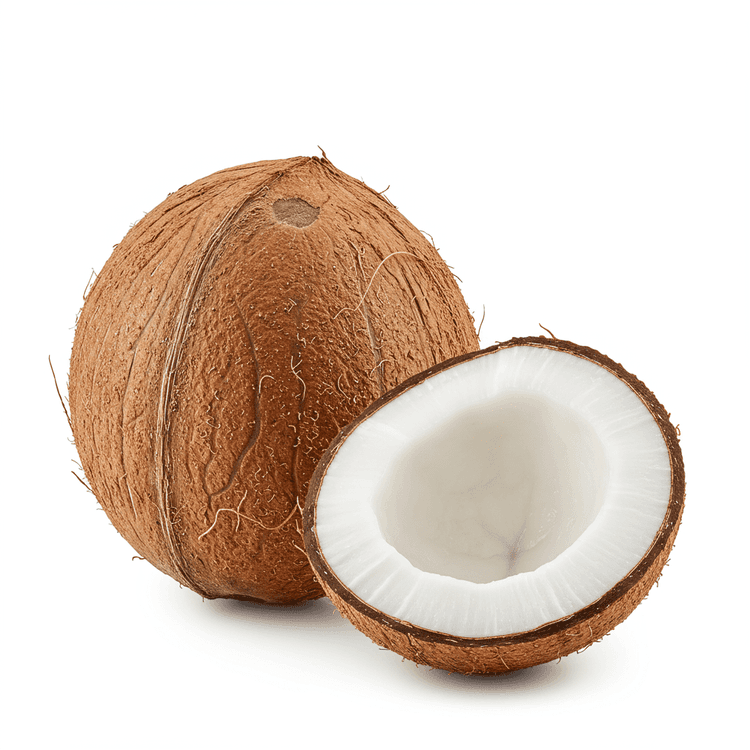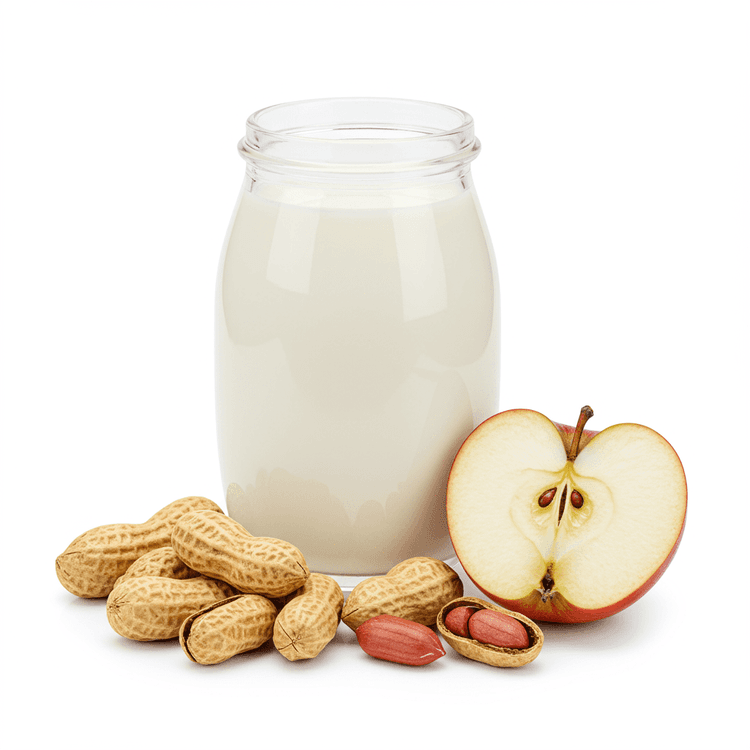
Coconut
Coconut is a versatile tropical fruit known for its rich, creamy flavor and unique texture. Encased in a hard, fibrous shell, the white flesh inside is tender and slightly sweet, while the clear coconut water offers a refreshing, mildly nutty taste. Coconut is widely used in cooking, baking, and beverages, prized for its ability to add depth and exotic flair to dishes. Packed with healthy fats, fiber, and essential nutrients, coconut is a staple ingredient in cuisines around the world, from Southeast Asian curries to Caribbean desserts. Its distinct aroma and flavor make it a favorite for both savory and sweet recipes, as well as plant-based diets and gluten-free cooking.
Common Uses
- Used to make coconut milk, a creamy dairy-free alternative perfect for curries, soups, smoothies, and vegan recipes.
- Grated or shredded coconut is added to baked goods like cakes, cookies, and muffins for texture and flavor.
- Coconut water is enjoyed as a hydrating drink or used as a base for smoothies and cocktails.
- Coconut oil is extracted and used for frying, baking, or as a butter substitute in plant-based cooking.
- Toasted coconut flakes are sprinkled over desserts, salads, or yogurt for a crunchy, nutty garnish.
- Coconut meat is blended into dips, spreads, or energy balls for healthy snacks and recipes.
Nutrition (per serving)
Nutrition (per serving)
Calories
354.0kcal (17.7%)
Protein
3.3g (6.6%)
Carbs
15.2g (5.53%)
Sugars
6.2g (12.4%)
Healthy Fat
1.8g
Unhealthy Fat
29.7g
% Daily Value based on a 2000 calorie diet
Nutrition (per serving)
Calories
354.0kcal (17.7%)
Protein
3.3g (6.6%)
Carbs
15.2g (5.53%)
Sugars
6.2g (12.4%)
Healthy Fat
1.8g
Unhealthy Fat
29.7g
% Daily Value based on a 2000 calorie diet
Health Benefits
- Rich in healthy fats, particularly medium-chain triglycerides (MCTs), which provide quick energy and support satiety.
- Contains essential minerals like manganese, copper, and iron, which contribute to overall wellness.
- Adds a naturally sweet and tropical flavor to recipes, making it a versatile ingredient in both savory and sweet dishes.
- Commonly used in dairy-free diets as a base for alternatives like coconut milk, cream, and yogurt.
- High in dietary fiber, aiding digestion and promoting a feeling of fullness.
- Popular in gluten-free and grain-free baking due to its unique texture and binding properties.
Chefadora AI is here.
Experience smarter, stress-free cooking.
Storage Tips
Whole coconuts should be stored at room temperature in a cool, dry place and used within a few weeks. Once opened, the coconut meat should be refrigerated in an airtight container and consumed within 5-7 days. Coconut milk and cream should be refrigerated after opening and used within 3-5 days. For longer storage, coconut meat can be frozen in sealed bags or containers for up to 6 months.
Marnirni-apinthi Building, Lot Fourteen,
North Terrace, Adelaide, South Australia, 5000
Australia





